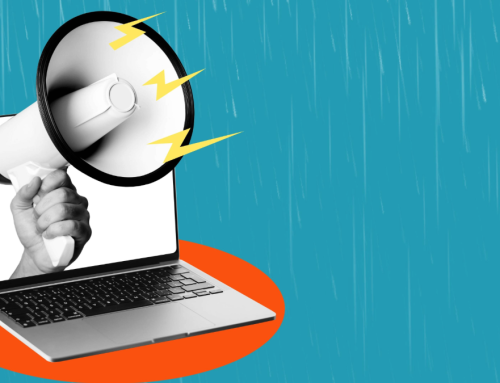Digital marketing can take your company to the next level.
Customer behavior accounts for marketing trends and these trends decide how various business entities work.
If you’re already a digital marketer or keen on joining the industry, you’re on the right track.
The use of digital marketing tools for businesses is no longer an option now. It’s an absolute necessity that sits on top of everyone’s bucket list. The technological advancements, ease-of-access to the internet, etc., all contribute to the immense success of the digital marketing industry.
You can offer personalized experiences to your customers by leveraging various digital marketing strategies. It’s safe to say that digital marketers have a clear edge over their offline counterparts when it comes to offering a seamless and user-specific experience.
Here are 5 reasons why digital marketing is the future:
1. Monitor Engagement & Time Spent
As a marketer, you need to figure out where your target audience resides. A report by We Are Social informs that people spend more than six-and-a-half hours on the internet each day. So, it’s a no-brainer that it’s easier to interact with these people and convert them into your customers.
Mobile phones continue to dominate the internet usage trends and have already equaled the traffic coming from desktop systems. For the same reason, your digital marketing strategy should also follow a mobile-first approach.
Be it the video content or the time spent on social media – the numbers are staggering and are bound to increase in the future. Take advantage of this now to prepare your business for the digital world.
2. Reach Generation Z and a Wider Audience
The generation Z population is more than familiar with the internet and are considered the best quality leads in the marketplace. They want everything to be fast, precise, and time-effective. Digital marketers know the importance of providing a memorable experience to this genre of the target audience.
The top marketers are now equally focussing on the millennials as well as the generation Z. The math is simple. Give them what they want and reap the benefits by scoring conversions, increasing your client-base. etc.
If you have an e-commerce store or provide online services, this is the audience category that’ll make or break or digital venture. If you serve them well, you’ll receive an overwhelming response. If not, you’ll have to bring-in a few modifications.
3. Build Brand Awareness with a Global Mission
While the developed countries like the U.S.A. and the U.K. have already embraced the digital setup, the developing countries like India and China aren’t far away either. Digitization is critical from a government perspective because it simplifies the process of providing public services.
The governing bodies can easily collect citizen data, roll-out their messages, etc., via authorized digital channels. The same also builds trust among the masses who are skeptical of shifting to the digital modes.
So, all you need to do is be proactive and devise effective online marketing strategies for small businesses by inclining with the global mission to go digital.
4. Measure ROI with SEO, Artificial Intelligence and Data Analytics
Digital marketing has found its best friend in artificial intelligence (A.I) doesn’t only automate various processes for you, it also helps you make educated decisions. The leading example of it is programmatic advertising.
This smart technology decides the best audience category for you and also configures the entire advertising space with rigorous data analysis. A report by Pubmatic informs that around 86% of the total digitized ads would be presented via automation in the near future.
The ROI associated with digital marketing is always positive because of such technological integrations that mitigate risks and reduce business costs.
5. Track Your Results with KPIs and Cost Effective Tools
You can track your efforts and evaluate them on various grounds in digital marketing. There are many generalized KPIs that help you with the same and you can also set strategic KPIs to monitor your digital marketing strategy.
These quantifiable goals help you measure the success rate of your marketing campaigns and offer a direct “expectation vs. reality” comparison. You can continue to improve your digital marketing strategies by exploring this data to bridge the gap between target values and accomplished results.
To Conclude
When you utilize digital marketing for brand awareness, lead generation, conversion, etc., you have access to a massive audience pool of more than 4.5 billion people. The future looks ever-so-bright for digital marketing and you can expect to hear this term for quite a few decades.











